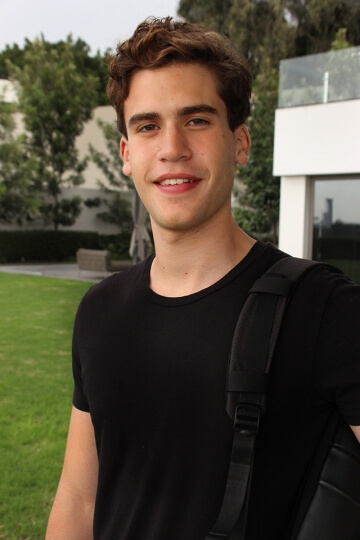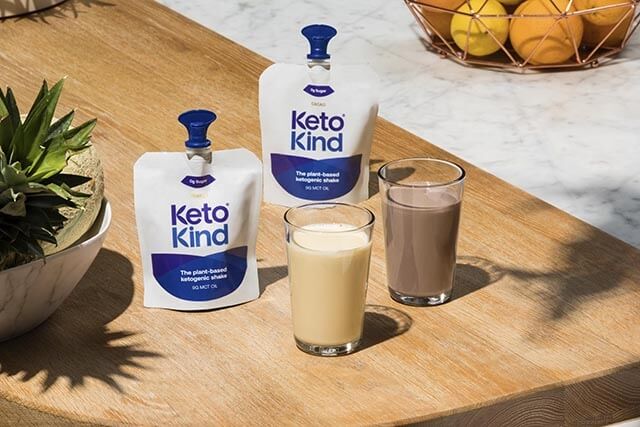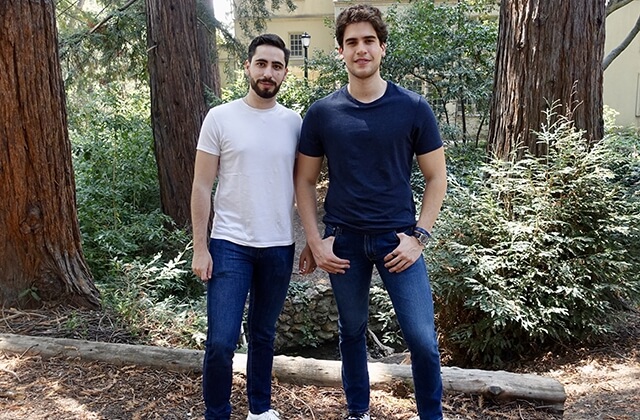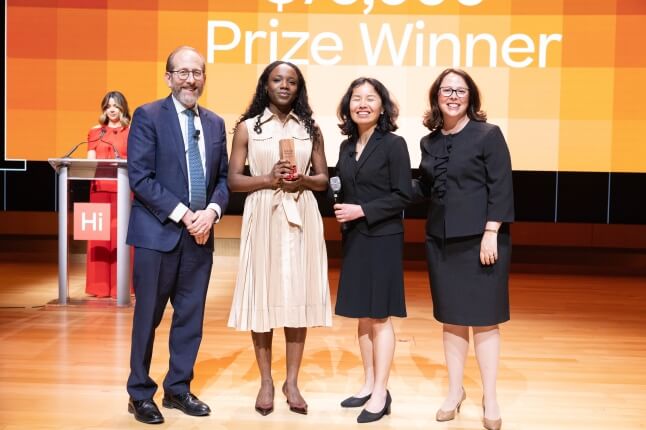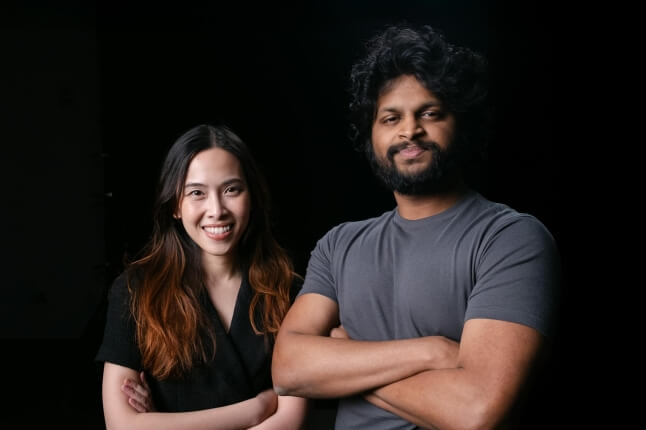News
Andres Rosales
While interning at a health company, Andres Rosales learned how clinicians were exploring the use of ketogenic diets to help patients manage and even reverse type 2 diabetes. But he saw a problem—many of the meal support products prescribed to diabetic patients were high in sugars and carbohydrates, not ideal for a keto diet.
Following a keto diet involves drastically reducing consumption of carbohydrates and replacing them with fats. This puts the body into a metabolic state called ketosis, which can make the body more efficient at burning fat for energy.
“I just got so fascinated by this problem and distraught and angry by the fact that diabetic patients were being prescribed sugary products,” said Rosales, A.B. ’22, an applied math concentrator at the Harvard John A. Paulson School of Engineering and Applied Sciences (SEAS). “I just found that to be so contradictory and harmful that I thought this project couldn’t wait.”
So Rosales decided to create a product that could provide nutritional support for diabetic patients while also ticking the boxes of the ketogenic diet. He and co-founder Mauricio Moel, B.A. ’21, a neurobiology major at Boston University, have now launched Keto Kind, a startup that produces a plant-based keto shake.
The startup was named the Gold Medal Grant Winner of the McKinley Family Grant for Innovation and Entrepreneurial Leadership in Social Enterprise in the i3 Harvard College Innovation Challenges, sponsored by the Technology and Entrepreneurship Center (TECH) at SEAS, earning the co-founders a $12,500 award.
The award is a welcome vote of confidence that their hard work over the past 18 months has the potential to bear fruit, Rosales said.
“Managing a supply chain and actually building a physical product, while being a college student at the same time, it was crazy,” he said.
The co-founders began by experimenting with a keto shake formula in their dorms and the kitchens of Harvard dining halls. But before they got too far, they formed a scientific advisory board of clinicians and nutritionists who advised them as they developed a formula that met the rigid standards demanded by health care settings.
Keto Kind is a plant-based keto shake that provides nutritional support.
The finished product is a plant-based shake that has a three-to-one ketogenic ratio, which means more than 75 percent of its calories come from fats, Rosales explained.
“That ratio is very important for clinicians because they want to make sure their patients are in clinical ketosis, and in order to achieve that, most people need a three-to-one ratio,” he said. “Keto Kind also has no sugar and only two grams of carbs. And it has a very clean profile—all the ingredients are organic and there are no filler ingredients. It has been made with the patient in mind throughout the process.”
Once they arrived at the ideal formula, the co-founders worked with an R&D company to determine how to scale the product for production. They have contracted with a manufacturer and the first Keto Kind shakes will be distributed later this summer.
Rosales is grateful for the Harvard resources that have helped them every step of the way. The advising they received through the Harvard Innovation Labs and the support from Paul Bottino, Executive Director of Innovation, in the SEAS entrepreneurship course Startup R&D (ES 95r) has been critical to their success.
Keto Kind co-founders, Mauricio Moel (left) and Andres Rosales
Looking to the future, the co-founders plan to use some of the funding they received to perform research studies of their product in a clinical setting. From there, they plan to build out a referral network of clinicians to get Keto Kind into the hands of patients through medical practitioners.
As more research is conducted on how low-carb and ketogenic diets can affect other diseases, Rosales expects the market for Keto Kind to grow.
“The best part of this process has been working with clinicians and talking with patients and seeing how appreciative they are to have this product,” he said. “When someone is excited about your product, that is very humbling and rewarding.”
Topics: Entrepreneurship
Cutting-edge science delivered direct to your inbox.
Join the Harvard SEAS mailing list.
Press Contact
Adam Zewe | 617-496-5878 | azewe@seas.harvard.edu
